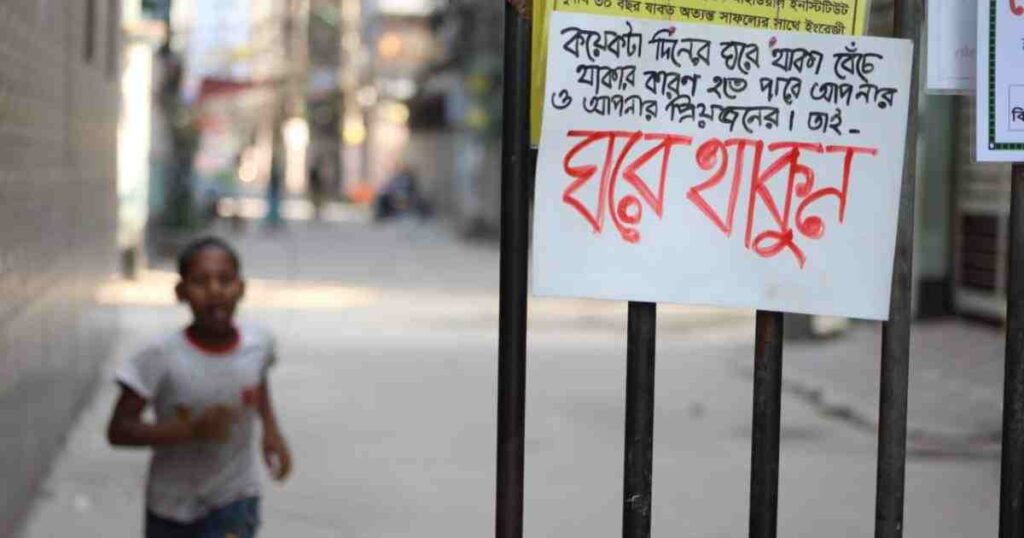Though multiple early-stage studies, including one by MIT researchers, suggest coronavirus transmit less efficiently in countries with warm and humid conditions, Bangladesh’s health experts think not whether but social distancing and strict implementation of other protective measures are the saviors of the pandemic virus.
They also said the studies that raised hope that the warmer temperature impedes the transmission of the deadly virus have yet to be peer-reviewed and proved scientifically and conclusively while the virus is behaving differently in different countries and conditions.
Talking to UNB, IEDCR director Prof Meerjady Sabrina Flora, Bangabandhu Sheikh Mujib Medical University (BSMMU) Vice-Chancellor Prof Kanak Kanti Barua, BSMMU Professor Dr Mohammed Atiqur Rahman and head of medicine department head at Dhaka Community Medical College & Hospital (DCMCH) Dr. Harun-or-Rashid said adequate evidence so far does not offer a basis to believe the benefit of sunlight and humidity for slowing down the Covid-19 transmission.
A study conducted by the Massachusetts Institute of Technology (MIT) in the US found that 90 percent of coronavirus transmissions up to 22 March occurred in regions with an average temperature between 3C and 17C and a particular humidity range.
But the MIT researchers warned their results “in no way suggest” Covid-19 cannot spread in warm, humid regions.Scientists at China’s Beijing and Tsinghua University, who examined the spread of the disease in 100 Chinese cities, found that “high temperature and high relative humidity significantly reduce the transmission of Covid-19”.
Some other studies also came up with the same hypothesis that warmer weather could help wane the spread of coronavirus. Experts, however, said all these studies were carried out in February or March when the virus did not badly spread in the countries with hot weather.
Meanwhile, a prestigious scientific panel of the USA told the White House on April 7 that it does not look like coronavirus will go away once the weather warms up and the country should not rely on warm weather to stop contagion.
The US National Academies of Sciences, Engineering and Medicine, in a public report said although some reports, including the one of MIT, showed pandemic growth rates peaking in colder conditions, those studies were short and limited.
Dr Anthony S Fauci, US’s leading expert on infectious diseases, recently said although it was not unreasonable to assume the summer weather could diminish the spread, “You don’t want to count on it.”
Meanwhile, a preliminary result from the US government lab experiments show that the coronavirus does not survive long in high temperatures and high humidity, and is quickly destroyed by sunlight, providing evidence from controlled tests of what scientists believed — but had not yet proved — to be true.
The study found that the risk of “transmission from surfaces outdoors is lower during daylight” and under higher temperature and humidity conditions. “Sunlight destroys the virus quickly.
Prof Flora said no scientific research still clearly suggested that coronavirus outbreak varies depending on colder or warmer weather.
“Many countries with summer climate including, Iran and Singapore, are grappling with the deadly outbreak of the virus. Even in the USA, summer has begun, but corona situation is not improving there,” she said.
The director of the Institute of Epidemiology, Disease Control and Research (IEDCR) said some virus cannot flourish in the high temperature, but corona is a new virus and its characteristics are still not clear. “The WHO also didn’t say anything involving weather and coronavirus. So, the perception has no basis that coronavirus is less deadly in the countries with warmer weather.”
Prof Kanak Kanti Barua said there is no clear indication from any scientific research that weather and coronavirus have any correlation and it is not justified to say coronavirus severity depends on weather pattern.
“Many people are giving various hypotheses that coronavirus prevalence won’t worsen in Bangladesh due to humidity in our weather. We shouldn’t believe such unproven perception. We should get ready for dealing with the possible worst situation,” he observed.
Prof Dr Mohammed Atiqur Rahman, a medicine specialist, said it was a perception at the early stage of the coronavirus outbreak that the virus can spread less in the countries having high temperature. “But the health experts around the world are now saying this virus can spread in any weather.”
“Almost all countries in the world have been affected by the deadly virus and it is spreading fast now in many countries with high temperatures,” he observed.
Atiqur said coronavirus did not spread badly in a cold-weather country like New Zealand as they took good preventive measures. “I personally think, not weather, the timely and appropriate preventive measures can help control the virus Covid-19.”
Dr Harun-or-Rashid said, “We don’t have any proof to differentiate the severity of the virus in colder and warmer weather.”
He said it seems the severity of the virus is very high in the country with winter season. “But it’s also a fact that the virus spread to the warmer-weather countries and it is taking a serious turn there. “We’ve to wait until this virus weakens to say whether the weather has any relation with it. “If we say this virus is not lethal in hot-weather countries it may send out a wrong message to people.”
“We still say if the lockdown and social distancing can be effectively enforced, corona must slow down. The countries that got success in controlling the virus because of their preventive measures, not for weather,” the expert viewed.
Monowar Hossain, a meteorologist, Bangladesh Meteorological Department, said many parts of the country have been experiencing a mild heatwave since last week while rain may occur across the country in the next one week until April 25.
He said they recorded the highest temperature 38C in Jashore on Friday and the lowest 17.9C in Sylhet region.In Dhaka, the highest temperature was 33.5C while lowest set 25.4C during the same period.He said the temperature will remain almost the same throughout April while it may rise further in the next month.
source: UNB




